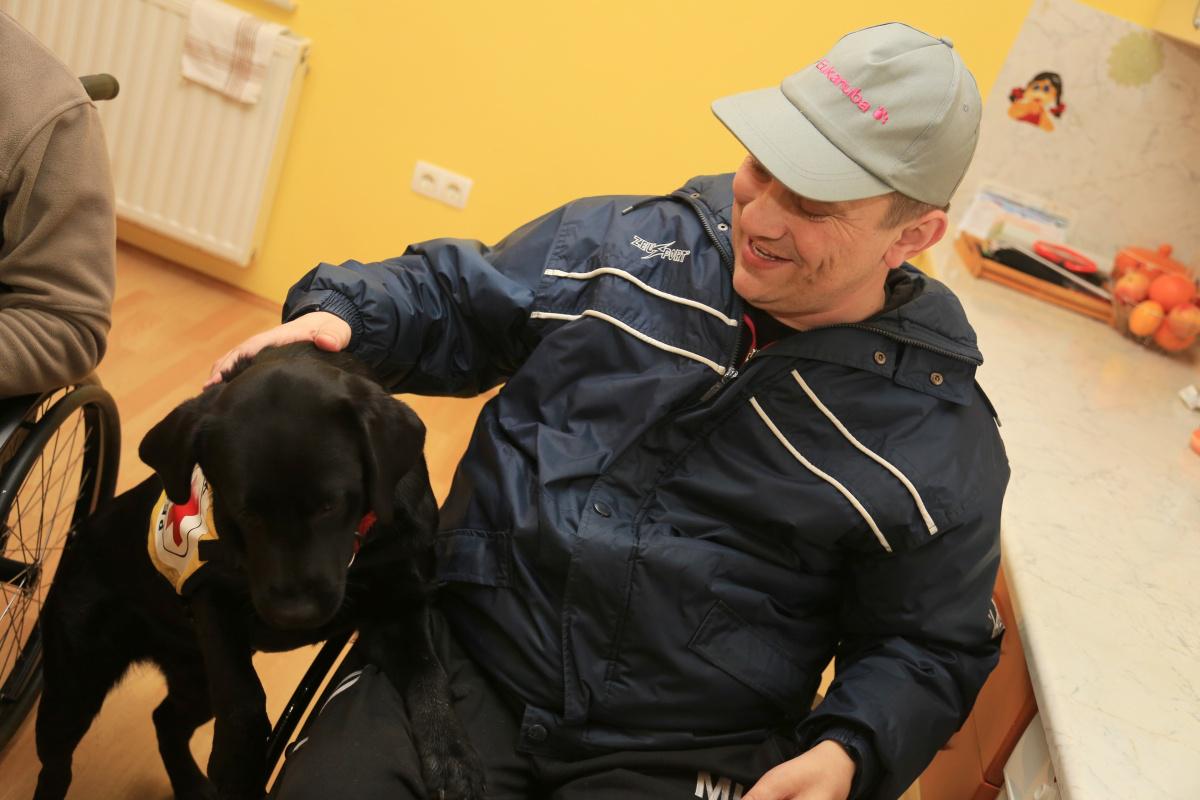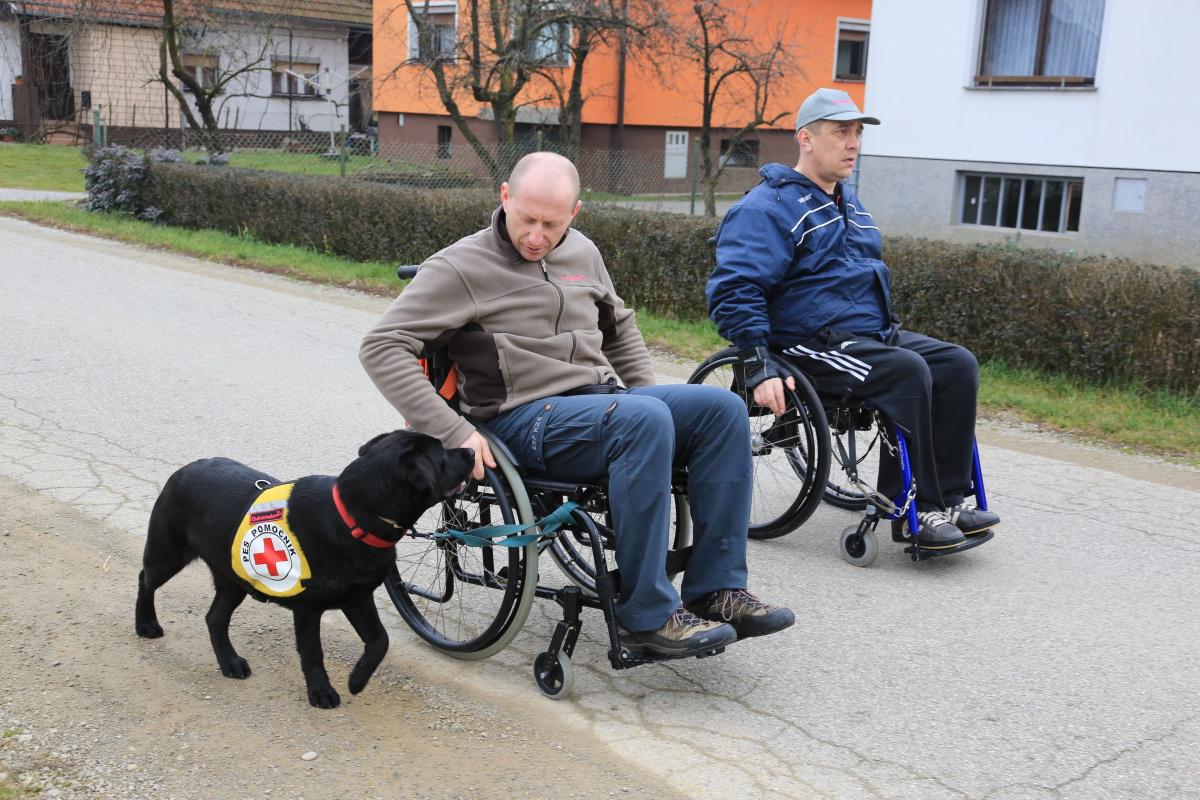

The tetraplegic who 13 years ago found himself in a wheelchair has to raise the money for training and purchase of a service dog, as the insurance company refuses to cover the expense.
The life of now 37-year old Martin Kerin from Veliki Podlog turned upside down 13 years ago. At the age of 24 the fatal jump into the Kolpa river severely damaged his vertebrae, and from then on he has been bound to a wheelchair. Next came treatment and rehabilitation in Soča University Rehabilitation Institute, but he never gave up. With great will and persistency he went on with his life; being a sportsman before the injury made it somewhat easier. He managed with the help of Kala, his service dog.
The 11-year old gold retriever Kala is taking care of Martin for the past nine years. With her assistance he can live almost independently, and need not depend on the others. Martin says some days they made even 15 kilometres, and that she is of enormous help to him: she opens doors, picks up things which fall from his hands, helps him dress. Yet Kala is getting old, she started losing her teeth, and has other health problems as well, including bone cancer. So she is not able to help Martin as she used to. Kala gets tired quickly, has difficulty in picking up object because of worn teeth, has troubles walking and her sight is getting worse as well. Sometimes she is in pain, and hardly moves all day.
Therefore Martin started looking for a new service dog – and recently he found one in Croatia. He chose a 10-month Labrador retriever Missy. Missy was submitted to a test by the dog trainer, passed, and has been in training for two months already. The dog instructors Matjaž Zanut and Alenka Sunčič Zanut from Brežice (Psi pomočniki) are in charge of her training; they have already trained several rescue dogs, guide dogs for blind persons, and dogs for other tasks. Her training will last whole ten months, and will cost 9 thousand Euros. They have already cooperated with Martin in the past, and now they meet again at least once a week, as the delightful black Labrador Missy needs to get used to him, and they are getting to know each other. Matjaž says that the dog needs to learn the basic things first, including obedience, and only then they will start with special training, so that she will be able to help Martin. Next comes the most important training phase – transfer to Martin, who should spend with her no less than next ten years, which is the expected length of service for these dogs. Matjaž claims that in ten months the dog will learn a lot: "Missy will first master the basic things – she will learn to sit, stay, walk on the left or on the right of the wheelchair. Later the more specific training is introduced, like fetching, picking up objects, opening doors and drawers, closing doors and drawers, undressing, she will be able to take the socks into a hamper or a washing machine – and we will be able to teach her even more."
Since the state run health insurance (ZZZS) does not cover the cost of purchase and training of a service dog, Martin has to raise the necessary sum by himself. Until now he managed to raise 3,200 Euros. Almost two thirds of this sum was raised for him by Resistec, the company where he had been employed. The company donated 1,000 Euros, and the employees almost 900 Euros. Also the Red Cross from Krško helped him raise the money; they opened a checking account for him. Therefore Martin hopes he will succeed, and thus will be able to continue to lead an independent life. Martin is already reconciled with the fact that he has to raise the money for Missy by himself, although he is aware that the insurance company covers the expenses for purchase and training of guide dogs for the blind, but not for tetraplegics. He finds it unfair, as without a dog he is not capable of living independently. But he mostly stopped dwelling on the cruelty of our insurance system, and hopes for help from donors. He is also grateful to those who help with dog food (Eukanuba) and veterinary services (Tristokosmatih Veterinary Clinic).



































































